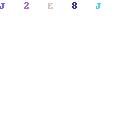Today, after working out with Andy at Hart House, I decided to go to Indigo at Bay/Bloor to see if they had anything good for their boxing week sale. It turned out that they were offering 30% off all hardcover books. I started wandering around the shop, looking for a hardcover book I would be interested in.
Thirty minutes later I was starting to feel severely disappointed. I'd searched the whole bookstore, from the Fiction sections to the Ideas section, but no -- as huge as the bookstore was, apparently no one had ever felt the need to add an LGBT section. This is despite there being books on religion and self-help and poetry and philosophy and psychology and current news and fashion and beauty and sports and alternative health (saw a bodybuilder-type person on one of their covers) and Asian Cooking.
Not that I should've had much hope for LGBT literature being in a mainstream bookstore to begin with, but come on. It seems like this systematic alienation of LGBT youth and adults will never end. I did stop by the sexuality section and typically, it was mostly straight vanilla stuff, all girls with lipstick and stereotypical imagery, aimed towards people who have no experience nor training in these fields at all. I saw one or two gay/lesbian books. Something hit me at that moment. I started to wonder whether it is appropriate to even define something as vague as "literature".
People will say, "I study English literature". "I love literature." But really, is "literature" just another socially regulated category, some elite group of books that have been deemed socially acceptable? Ideally, what good "literature" is should be based on solely the quality of the writing and language and ideas. But this is never really the case, and claiming that literature is everything that's "good writing" completely ignores other factors that people use to define and delineate what good literature is, such as the author's existing fame or lack thereof, the author's cultural background, the readers' cultural backgrounds, or even luck. If someone today wrote an extremely well-written book with evocative and new language and intricate and innovative ideas, would it be noticed if the subject of the book was BDSM? Or would the inclusion of BDSM automatically banish it to the realm of "alternative reading"?
Or, worse, would it be censored, suppressed, erased from the face of the earth? In UNI255 I watched a film I watched called Little Sister's vs. Big Brother, which detailed the legal battles of a bookstore (Little Sister's) to stop the censorship and seizing of gay and lesbian materials, including s/m materials, by the government (via Canada Customs). I distinctly remember one participant in the movie who said that the government was in fact speeding up the disappearance of a literature: many the authors who'd written the books had died from AIDS and the seizing of the materials precipitated their being unnoticed and forgotten.
This leads me to a personal conundrum which I have never been able to resolve. Is the whole process of delineating what 'good art' problematic? But if the concept of high literature did not exist could we ever separate what is wonderfully or inventively expressed to what is clumsily written?
After my adventure at the bookstore I popped into Calvin Klein to see if they had any nice underwear on Boxing Day sale. While I was looking through their racks a masculine-looking gay man was speaking to the sales clerks and was telling them that he went with this underwear instead of that underwear because that underwear he'd seen on people who are "really gay".

